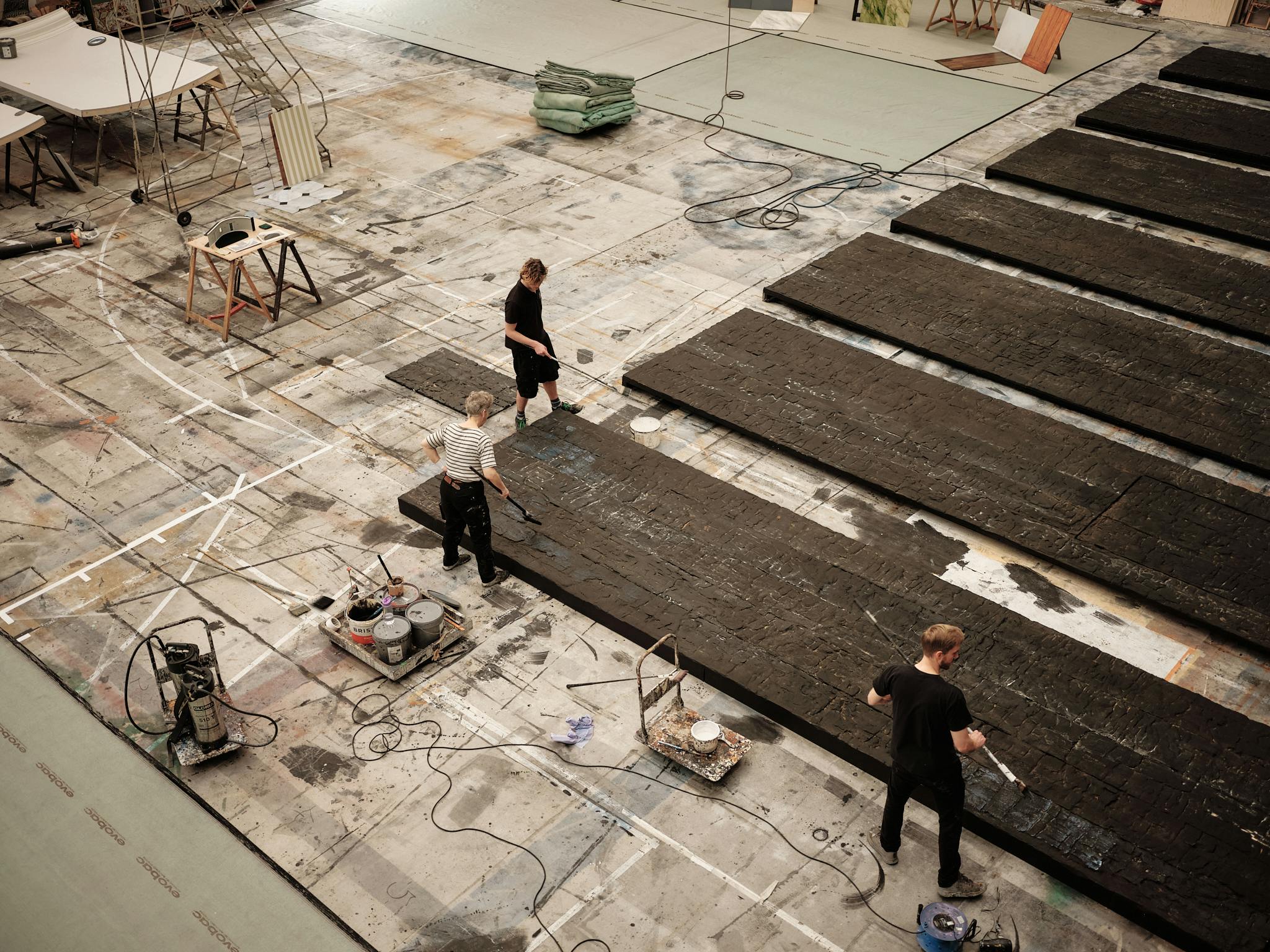Tosca
Tosca
Tosca
The splendour of Rome. The devastation of war. Puccini’s operatic thriller returns in an epic new production.

Anna Netrebko and Aleksandra Kurzak share the title role, starring alongside Freddie De Tommaso and Gerald Finley in a thrilling new staging of Puccini’s Tosca for The Royal Opera. Conducted by new Music Director Jakub Hrůša and directed by Oliver Mears.
Anna Netrebko and Aleksandra Kurzak share the title role, starring alongside Freddie De Tommaso and Gerald Finley in a thrilling new staging of Puccini’s Tosca for The Royal Opera. Conducted by new Music Director Jakub Hrůša and directed by Oliver Mears.
Royal Ballet and Opera Principal Julia Rausing Trust
Philipp Friese, Charles Holloway OBE, John McGinn and Cary Davis, The Thompson Family Charitable Trust, Royal Ballet and Opera Patrons and The American Friends of Covent Garden
A young couple – and a violent predator
In war-torn Rome, Floria Tosca and Mario Cavaradossi live for each other and for their art. But when Cavaradossi helps an escaped prisoner, the lovers make a deadly enemy in the form of Baron Scarpia, Chief of Police. At the mercy of Scarpia’s twisted desires, Tosca is forced into making a horrific bargain: sleeping with the man she hates to save the man she loves. Can she find a way out?
A star-studded cast includes sopranos Anna Netrebko and Aleksandra Kurzak as Tosca, tenor Freddie De Tommaso as Cavaradossi, and bass-baritone Gerald Finley as Scarpia, with Jakub Hrůša conducting his first new production as Music Director of The Royal Opera. Modern-day Rome provides the backdrop for Oliver Mears’ unmissable, gripping new production of Puccini’s thriller.
To find out more about the opera, including key plot points and background information, read our Tosca Opera Essentials page.
Background
The composer’s journey: from Sardou's play to Puccini’s opera
From the early 1890s Giacomo Puccini had toyed with adapting French playwright Victorien Sardou’s gripping melodrama La Tosca into an opera, but only began serious work following the premiere of the critically acclaimed La bohème in 1896. Employing La bohème's gifted librettists Giuseppe Giacosa and Luigi Illica to streamline Sardou's complicated plot, Puccini’s Tosca premiered in 1900. With the city gripped by political unrest, fears of violence plagued the premiere at Rome’s Teatro Costanzi. However, Tosca opened without incident, and although unpopular with critics who disliked its violence, it became an immediate success with the public and has remained a favourite ever since.
Character-painting through music
Puccini’s music plunges the audience straight into the action, and the pace doesn’t let up. Featuring the heroine’s sublime prayer to art, ‘Vissi d’arte’, and Cavaradossi’s lament, ‘E lucevan le stelle’, his poignant lament, Tosca is an icon of the opera repertoire. Puccini portrays the idealism of Tosca and her lover Cavaradossi through radiant, expansive music, including Act I's duet 'Qual’occhio al mondo' (What eyes of this world) and Cavaradossi's ardent aria 'Recondita armonia' (Hidden harmony). Scarpia's music, by contrast, is dark and terrifying – from the demonic chords that open the opera to the violence of his Act II exchanges with Tosca.
Cast and Creatives
Cast
The cast of this production may vary depending on performance date. Go to cast and dates to see these.
Creatives

Access
There is lift access and step-free routes to over 100 seats in the Stalls Circle, Balcony and Amphitheatre. There are 10 steps or fewer to some seats in the Stalls Circle, Balcony, Amphitheatre and the Donald Gordon Grand Tier. All seats in the Orchestra stalls are accessed by 9 steps or more. A handheld bell is rung by Front of House staff to signal guests to take their seats before a performance. The bell is loud and can be startling. The bell is rung approximately ten minutes before the show starts and at each interval.
We have an assistive listening system available to use. This opera is sung in Italian with English surtitles. Captions and translations in English will be displayed on screens above the stage and around the auditorium.
Upcoming accessible performances:
All performances are Audio Described.
There will be an Audio Described performance on 5 October 2025 with a Touch Tour one hour before the performance.
There will be a British Sign Language interpreted, Audio Described and Captioned performance on 7 October 2025.
Join our Access Scheme for priority access performance tickets and to personalise your account for your access requirements.
See our Accessibility page for more information on access at the Royal Opera House.

Donate
The Royal Ballet and Opera is a charity and relies on your support. No matter the size, every gift is critical to our work and helps us to secure the future of ballet and opera.
Your donation will enable us to keep extraordinary work on our stages, inspire the next generation and support the Royal Ballet and Opera's community of artists, technicians and craftspeople.
For people, not profit. Making world class ballet and opera for everyone.
Royal Opera House Covent Garden Foundation, a charitable company limited by guarantee incorporated in England and Wales (Company number 480523) Charity Registered (Number 211775)

